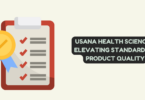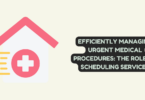
Data Empowered Decision Making: Shaping Tomorrow’s Success
In today’s rapidly evolving business landscape, the ability to make informed decisions swiftly is paramount to success. With the exponential growth of data generated by digital platforms, businesses are presented with a unique opportunity to harness this wealth of information and transform it into actionable insights. Data empowered decision-making has emerged as a critical strategy for organizations aiming to stay competitive and drive innovation in their respective industries.
The Power of Data in New Product Development
One of the key areas where data empowered decision-making is revolutionizing traditional processes is in new product development (NPD). Historically, NPD has been a complex and resource-intensive endeavor, often fraught with uncertainty and risk. However, with the advent of sophisticated NPD software solutions, companies now have the ability to streamline the entire product development lifecycle, from ideation to launch.
Revolutionizing Product Development
It empowers organizations to gather real-time feedback from customers, monitor market trends, and iterate on product designs rapidly. By analyzing vast amounts of data related to consumer preferences, competitor offerings, and emerging technologies, businesses can make informed decisions at every stage of the NPD process. This data-driven approach not only reduces time-to-market but also increases the likelihood of developing successful products that resonate with target audiences.
Utilizing Consumer Insights for Product Innovation
One of the key advantages of data empowered decision-making in NPD is the ability to leverage consumer insights to drive product innovation. By analyzing data from various sources such as social media, surveys, and online reviews, businesses can gain a deeper understanding of customer needs, preferences, and pain points. This allows them to identify market opportunities, develop differentiated products, and tailor their offerings to meet the evolving demands of their target market.
Iterative Development and Continuous Improvement
Moreover, NPD software facilitates iterative development and continuous improvement by enabling businesses to test and refine product concepts through rapid prototyping and experimentation. By collecting feedback early and often, organizations can identify potential issues, address customer concerns, and make necessary adjustments before investing significant resources into full-scale production. This agile approach not only minimizes risk but also increases the likelihood of launching successful products that resonate with customers.
Optimizing Project and Portfolio Management with Data
Similarly, project and portfolio management (PPM) software play a pivotal role in facilitating data empowered decision-making within organizations. PPM software enables businesses to effectively prioritize and allocate resources across a portfolio of projects, ensuring alignment with strategic objectives and maximizing return on investment.
Strategic Resource Allocation
Integrating data from various sources, including financial metrics, resource availability, and project timelines, it provides stakeholders with comprehensive insights into project performance and enables proactive decision-making to mitigate risks and capitalize on opportunities. This enables organizations to allocate resources strategically, optimize project portfolios, and ensure that resources are allocated to initiatives with the highest potential for success.
Real-Time Monitoring and Performance Tracking
Moreover, it enables real-time monitoring and performance tracking, allowing stakeholders to track progress, identify bottlenecks, and make data-driven decisions to keep projects on track. By leveraging dashboards, reports, and analytics tools, organizations can gain visibility into key metrics such as project timelines, budget utilization, and resource allocation, enabling them to identify trends, patterns, and areas for improvement.
Agile Project Management
Furthermore, such software supports agile project management methodologies by enabling teams to adapt quickly to changing requirements, prioritize tasks effectively, and collaborate more efficiently. By breaking projects down into smaller, manageable tasks and sprints, organizations can accelerate delivery, reduce time-to-market, and respond rapidly to customer feedback and market dynamics.
Driving Operational Excellence Through Data
Data empowered decision-making extends beyond individual projects or product launches; it permeates every aspect of organizational strategy and operations. By harnessing data from internal and external sources, businesses can optimize processes, enhance efficiency, and drive continuous improvement across the entire value chain.
Optimizing Supply Chain Management
One area where data empowered decision-making is making a significant impact is in supply chain management. By leveraging data from suppliers, distributors, and logistics partners, organizations can optimize inventory levels, streamline procurement processes, and improve supply chain visibility. This enables them to reduce lead times, minimize stockouts, and ensure timely delivery of products to customers.
Personalizing Customer Experiences
Data empowered decision-making enables organizations to personalize customer experiences by leveraging data to understand customer preferences, behaviors, and purchase history. By analyzing customer data from various touch points such as websites, mobile apps, and social media, businesses can tailor their marketing messages, offers, and recommendations to individual customers, increasing engagement, loyalty, and lifetime value.
Enhancing Operational Efficiency
It enables organizations to enhance operational efficiency by identifying inefficiencies, optimizing workflows, and automating repetitive tasks. By analyzing data on process performance, resource utilization, and cycle times, businesses can identify opportunities to streamline operations, eliminate waste, and improve productivity. This enables them to operate more efficiently, reduce costs, and allocate resources more effectively to drive business growth.
Challenges and Considerations
However, the journey towards data empowered decision-making is not without its challenges. Many organizations grapple with issues related to data quality, integration, and governance, which can hinder their ability to derive actionable insights effectively. Additionally, there may be cultural barriers within the organization, where stakeholders are resistant to change or lack the necessary data literacy skills to leverage analytics effectively. Overcoming these challenges requires a concerted effort to invest in data infrastructure, foster a data-driven culture, and provide training and support to enable employees to harness the power of data effectively.
Decision-making also raises ethical and privacy considerations that must be addressed responsibly. As organizations collect and analyze increasing amounts of data, they must prioritize data security and privacy to maintain the trust and confidence of their customers and stakeholders. This necessitates robust data protection measures, transparent data practices, and compliance with regulations such as GDPR and CCPA to safeguard sensitive information and ensure ethical use of data.
Conclusion
Data empowered decision-making is transforming the way businesses operate and innovate in today’s digital age. By harnessing the power of data and leveraging advanced technologies such as PPM software, organizations can gain a competitive edge by making informed decisions that drive success. However, realizing the full potential of data requires overcoming various challenges and embracing a culture of data-driven decision-making. With the right strategy, infrastructure, and mindset, businesses can unlock the full potential of data and shape tomorrow’s success in an increasingly complex and dynamic marketplace.






